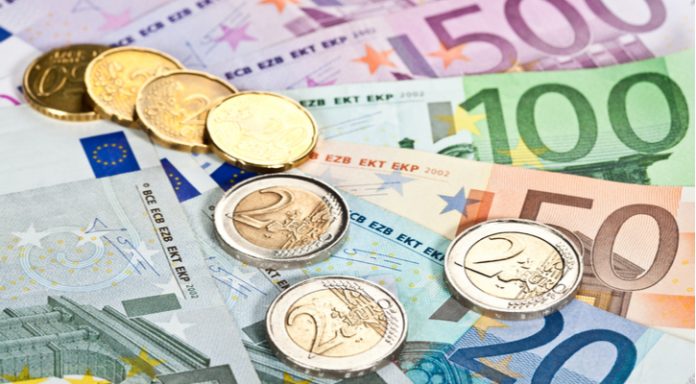Reassurance from the government that EU migrants can stay in the UK in the case of a no deal Brexit, boosted the pound on Monday. The pound moved marginally higher versus the euro to a peak of €1.1186, before is pulled back towards the close.
| What do these figures mean? |
|---|
|
When measuring the value of a pair of currencies, one set equals 1 unit and the other shows the current equivalent. As the market moves, the amount will vary from minute to minute. For example, it could be written: 1 GBP = 1.13990 EUR Here, £1 is equivalent to approximately €1.14. This specifically measures the pound’s worth against the euro. If the euro amount increases in this pairing, it’s positive for the pound. Or, if you were looking at it the other way around: 1 EUR = 0.87271 GBP In this example, €1 is equivalent to approximately £0.87. This measures the euro’s worth versus the British pound. If the sterling number gets larger, it’s good news for the euro. |
A government paper stating that the UK government will provide EU immigrants with a unilateral right to stay in the UK, even in the case of no Brexit deal, boosted the pound in the previous session. The decision was taken amid growing concerns that failure to do so would lead to labour shortages in both the public and the private sector. Insufficient workers to support economic activity could lead to the economy slowing and is one of the big concerns that economists voice when discussing the impact of significantly lower immigration or increased emigration. Therefore, news that EU immigrants will have the right to stay, in a no deal Brexit, which is looking increasingly likely, is good news for the UK economy and therefore good news for the pound.
Brexit will continue to take centre stage for pound traders as EU Chief negotiator Michel Barnier and UK Brexit Secretary Dominic Raab meet. Headlines pointing to the increased likelihood of a no deal hard Brexit could weigh on the pound.
| Why is a “soft” Brexit better for sterling than a “hard” Brexit? |
|---|
| A soft Brexit implies anything less than UK’s complete withdrawal from the EU. For example, it could mean the UK retains some form of membership to the European Union single market in exchange for some free movement of people, i.e. immigration. This is considered more positive than a “hard” Brexit, which is a full severance from the EU. The reason “soft” is considered more pound-friendly is because the economic impact would be lower. If there is less negative impact on the economy, foreign investors will continue to invest in the UK. As investment requires local currency, this increased demand for the pound then boosts its value. |
Today there is also some mid tier data which could attract the attention of market participants, which comes in the form of public sector net borrowing figures. Analysts are expecting the government’s books to show a smaller deficit in July.
Turkish Lira Crisis Continues To Unnerve Euro Investors
Demand for the euro was softer at the beginning of the new week as the Turkish lira crisis remained in focus. The Turkish lira was falling again which is reviving concerns of contagion. Despite funding and currency support from Qatar the lira was down over 2%, although it has picked up from the lows reached last week.
The lira’s decline in the previous session comes after credit ratings S&P and Moody’s both downgraded Turkish debt further into junk status. This means that the cost of servicing the debt increases adding further pressure the Turkey’s financial system.
The fear remains that a devaluation of around 19% across August so far for the lira, could see Turkish corporates with foreign struggle to repay loans. This means the banks with the bad loans, which are mainly European could take a large hit, making investors nervous.
Turkish markets are closed now for the rest of the week for a public holiday, meaning any new policy from the Turkish government is unlikely.
This publication is provided for general information purposes only and is not intended to cover every aspect of the topics with which it deals. It is not intended to amount to advice on which you should rely. You must obtain professional or specialist advice before taking, or refraining from, any action on the basis of the content in this publication. The information in this publication does not constitute legal, tax or other professional advice from TransferWise Inc., Currency Live or its affiliates. Prior results do not guarantee a similar outcome. We make no representations, warranties or guarantees, whether express or implied, that the content in the publication is accurate, complete or up to date. Consult our risk warning page for more details.
This article was initially published on TransferWise.com from the same author. The content at Currency Live is the sole opinion of the authors and in no way reflects the views of TransferWise Inc.





